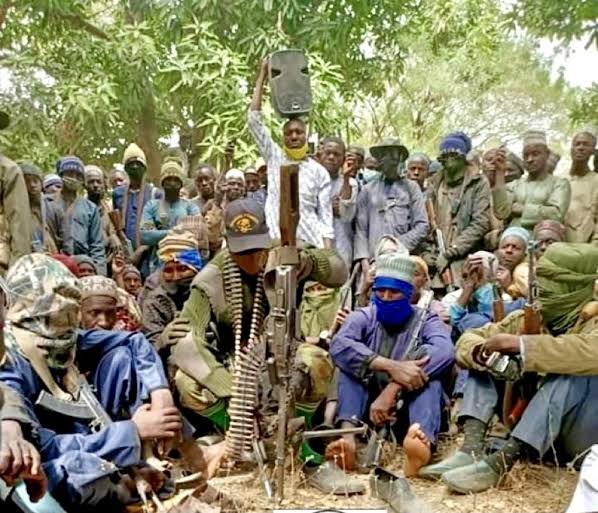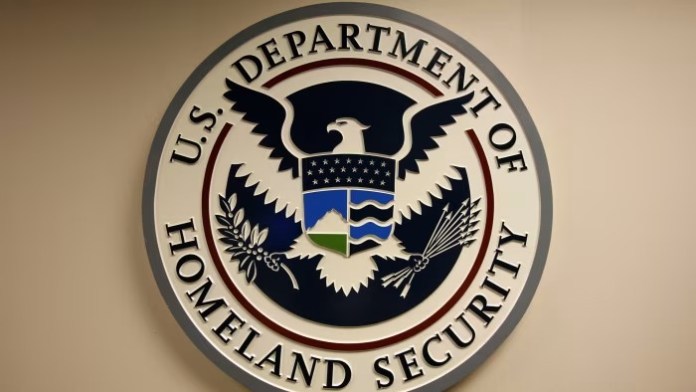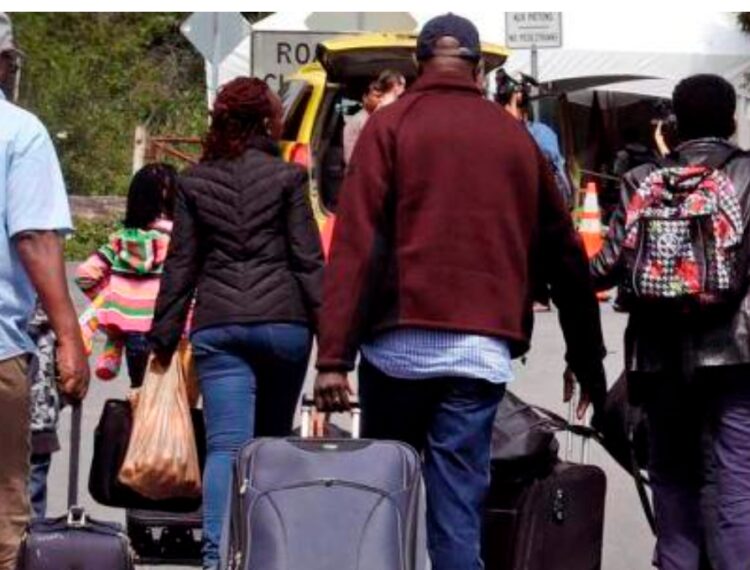News
Story Of Nigeria State City Turned Into A Ghost City After 10 Years Of Blackout

It has been ten years since the residents of Afikpo ancient city, in Afikpo Local Government Area of Ebonyi State, enjoyed public power supply.
According to report, they were completely cut off from the national grid.
The situation, according to them, has brought untold hardship and destroyed their economic life.
Afikpo was first energised in 1976 and its small population at that time reportedly had stable electricity.
However, as the population grew, the power infrastructure became overburdened and started failing.
In a bid to find a lasting solution to the power problem in Afikpo and Ebonyi South senatorial zone where most communities have similar epileptic power supply, the then-senator representing the area, Anyim Ude attracted the 133KVA sub-station in Amasiri, a suburb of Afikpo town in 2011.
While work on the substation progressed at a snail’s speed, the already existing power infrastructure in the area collapsed about 10 years ago, throwing the entire local government and neighbouring Edda Local Government into perpetual darkness.
Criminals also capitalised on the situation to vandalise and cart away some high-tension cables and other electrical parts, making it even more difficult to restore power.
Afikpo town, from which the local government draws its name, is the second largest urban centre in the state after Abakaliki, the State capital.
However, it has suffered a gross decline and economic downturn due to the lack of public power supply in the area for over a decade.
Highlighting this, the lawmaker representing Afikpo East State Constituency, Mr Ukie Ezeali said he spends over N3m to buy fuel to run his businesses in the area.
He lamented that similar businesses had packed up due to the situation, worsening the unemployment situation in the area.
He said the lack of power supply has impacted negatively on the socio-economic lives of the people in the area.
“Our people are being compelled to repeat the life of darkness they lived in the olden days.
“It is on record that Afikpo got stable light in 1976 but alas, that stable electricity faded away over 10 years ago.
“This has had a debilitating implication in the development of the town in all spheres of life.
“In education, this has affected the educational development of our children as they no longer can read at night as we used to do back in the days because of lack of electricity.
“This has also led to the complete failure of businesses in the area. Businesses depend on power. Establishing and running a thriving business in Afikpo is almost an impossible venture.
“This has led to low employment and translated to massive poverty in the area. Skill acquisition is no longer interesting to the youths because they can’t survive without power.
“The already established businesses don’t get customers because they have higher price tags to their products because it costs them more to use generators.
“As a result, customers will prefer to go down to Abakaliki or even Onueke to buy at cheaper prices and transport them back to Afikpo.
“As a result, most of the small-scale businesses have folded, while many are in comatose.
“Afikpo town, which is an ancient beautiful town, is now being deserted and looking like a ghost town,” he said.
The lawmaker also noted that the security situation in the area had deteriorated because of lack of power especially at night, as criminals now capitalised on the darkness to carry out their nefarious activities.
He regretted that more than a decade later, the substation, which is believed would permanently solve the power blackout in the area and most parts of Ebonyi South senatorial zone, is yet to be completed.
In February, Governor Francis Nwifuru, following a memo by Mr Ezeali, approved the release of N208 million for the refurbishment of transformers, supply of new ones, and other ancillary works.
This was supposed to facilitate the return of temporary power supply through the High Voltage lines from Nkalagu. But six months later, it has been dogged from one controversy to another.
Last week at a town hall meeting convened by the community’s elders, the lawmaker lampooned the ministry for doing a shoddy job.
Mr Ezeali while addressing the people said the governor is doing everything to ensure a permanent solution to the power situation.
He, however, noted that the Ministry has not been up and doing in completing the rehabilitation works on the transformers.
He accused the Commissioner and the Ministry of diverting the money approved by the Governor for the restoration of power in Afikpo which has cumulatively suffered nearly a decade blackout.
The Commissioner for Power, Peter Ogeali, at a briefing, accused the lawmaker, Mr Ezeali of vendetta against him and the ministry because he was not given the contract for the works.
According to him, Mr. Ezeali had come to him severally and pleaded to be given the contract since he was the one who originated the memo that led to the release of the money.
Mr Ogeali explained that since the approval was given to the Ministry, it elected quality contractors to execute the project working with qualified staff in the ministry to ensure that a good job was done.
He noted that he advised the lawmaker to speak to the governor as he was the only one that can order the ministry to award the contract to him.
The Commissioner further accused the lawmaker of coming back at a later date and begged him to split the money in half which he also refused.
He said: “We strongly believe he merely wanted to paint the Ministry black before his people and to show that to has done more than other stakeholders because there is nothing about the release of funds and the project’s feedback that he is not fully aware of.
“This is to the extent that as a legislator, though not a member of the House Committee on Power, Ukie Ezeali as the people’s representative had the exclusive privilege of being invited to be a part of the Committee when it visited the Ministry on oversight to make inquiries on the said Power project.
“And the committee was reasonably satisfied with the way and manner the project had been dutifully executed.
“Therefore, when a supposed leader in his class and caliber speaks about issues about government and governance as though it is a mere beer parlour affair, his people should be worried that there could have been a lot of devils in the details he has been furnishing the public with.
“Otherwise, apart from the distinctive roles of the Executive and the Legislative arms of government, he knows that all the key people handling the project are from his hometown and Afikpo Local Government Area.
“Even more so is the fact that the Governor had directed the Deputy Governor, Princess Patricia Obila, to supervise and ensure diligent execution of the project upon the said release of funds to the Ministry.
“It is trite therefore to inform the world that we know Ukie’s deep-seated grouse with the project and that is the fact that he desperately wanted to execute it as the sole contractor and perhaps supervisor.
“But he was denied because the Ministry wanted and eventually got someone with a superior knowledge and expertise in the Power field to handle the project to a superb finish and that it exactly got.
“Knowing his antics for the meeting and also being aware that the key figures handling the project are mainly his Afikpo town’s men, why didn’t Hon. Ukie Ezeali request the contractors and the Ministry staff who are from his Afikpo hometown to also be present in the meeting to at least clear the air on the roles of the Ministry regarding the baseless allegations he heaped on it on the said released fund?”
The Ministry explained that it is the responsibility of the Transmission Company of Nigeria (TCN) to ensure that energy is transmitted from one station to the other and the Discos to ensure that energy gets to the Installed Transformer Substations.
“To this end therefore, it is not the ministry of power that is delaying the supply of energy to Afikpo because the works as directed by the governor have since been completed by the ministry.
“What is delaying the supply of power to Afikpo and in some parts of Ebonyi South Senatorial Zone (Onicha, Isu, Uburu Okposi, etc.) is as a result of the relocation of High Voltage lines between Nkalagu and Ntezi along Enugu – Abakaliki Highway and the vandalised portion of the Network at Okposi axis.
“Already, government at all levels are restlessly trying to resolve these issues, as approval has been given for the request for variations by the contractor handling the 133KVA Amasiri substation to compensate those affected by the said relocation and fully restore electricity not only to Afikpo but other neighbouring communities in Ebonyi South,” the commissioner said.
In reaction, the lawmaker denied ever demanding for the project to be awarded to him or for any part of the money to be given to him.
He noted that as an indigene who feels the pain of the people and knows the importance of the project, he could not have done so.
He further noted that he has all his businesses located in the area and spends a lot on powering generators, adding that he would not take any action to sabotage the project.
He described the allegations by the Commissioner as cheap blackmail, noting that the Commissioner has been noted for such in the past.
Meanwhile, the Ebonyi State Executive Council has waded into the imbroglio.
A statement by the Commissioner for Information, Jude Okporo, said the Council took time to analyze the social media ripples that emanated from the Afikpo Light Project, as well as issues surrounding it.
“After intense and exhaustive deliberation, the Council resolved to inform the general public that the job leading to the restoration of light in Afikpo, contrary to erroneous information being peddled in some sections of the media, has been satisfactorily completed, only awaiting connection to the National Grid after the completion of the Transmission Company of Nigeria (TCN) Power Sub-Station, Amasiri, from which the State Government has extracted commitment that the job would be completed before the end of the year.
“It may interest the general public to know that as part of its negotiation with the Transmission Company of Nigeria (TCN), the State Government has approved payment for the diversion of the high-tension poles affected by the dualization of Enugu-Abakaliki-Ogoja Trans-Sahara Express Way,” he stated.
Meanwhile, the Afikpo Community has pleaded with the Federal Government and the Transmission Company of Nigeria to take urgent steps to complete the substation to find a lasting solution to the power situation and help the local government from falling further into economic doom.
The community made the call after their town hall meeting where they commended Governor Nwifuru for the efforts he has been making to solve the power problem.
The community while commending the Federal Government for the efforts so far made urged the TCN to redouble its efforts to ensure that the project is completed before the end of the year.
News
Banditry:” I was chained for 32days while in their den, killed my wife as I watch-Nat’l Assembly DD narrates experience

A Deputy Director at the National Assembly Commission, Michael Adesiyan, has narrated his near-death experience in the hideout of bandits.
Adesiyan was abducted from his Chikakore residence in Kubwa, a suburb in the nation’s capital, alongside his wife on January 26th, 2025 before he was rescued on April 7.
The civil servant narrated his ordeal to journalists at National Counter-Terrorism Centre, Abuja, when fresh 60 kidnapped victims, who were rescued by the security forces were presented to the National Security Adviser, Nuhu Ribadu.
Adesiyan called on the federal government to immediately look for a way to disarm the criminals and educate them, and possibly reintegrate them back to the society, adding that “the bandits don’t know what they are doing.”
According to him, his abductors were between the ages of 17 and 20, and they were stark illiterate people who were not aware of what they were doing, and could not even count N1 million let alone hundreds of millions they were asking as ransom.
He specifically said they were chained for 32 days he spent in the abductors’ den, adding that they killed his wife in his presence.
“I want to thank the government for rescuing us. I was chained for 32 days. I want to advise that the government should find away to disarm or arrest them (bandits), instead of confronting them.
“They can send them to school. Some cannot even count one million. They are stark illiterates. They are young people of ages 17 and 21. They don’t know what they are doing.
“So if they can bring them out, if they want to learn work (apprenticeship), they can let them do, retrain them, reorientate them, that they can be useful to themselves.
“My advice is to, instead of killing them, arrest them, reorientate them. If you want to educate them, they can then work. That’s my advice,” he said.
When asked why they were in a rush to tell their family members to pay ransom, he said, “When they kill someone in your presence, you would give them anything they want.
“For instance, they killed my wife in my presence. If they request your head in that situation, you will give it to them.”
Earlier, while giving a breakdown, the Coordinator, National Counter-Terrorism Centre, Maj. Gen Adamu Laka said the victims comprising 35 males and 25 females, were rescued on Monday April 7, by troops of 1 Division of the Nigerian Army, in a coordinated operation supported by other security and intelligence agencies.
News
US revokes more than 500 foreign student visas

No fewer than 500 foreign students have had their US visas revoked in recent weeks, as Donald Trump’s administration doubles down on its crackdown on universities.
Nafsa, a network of universities and individuals engaged in international education and exchanges, told the Financial Times on Tuesday it had identified 500 visa revocations by compiling reports from higher education institutions across the US.
“This is uncharted territory on so many levels,” Fanta Aw, chief executive of Nafsa said. “It’s at an unprecedented level and it’s quite concerning because there is a lack of clarity which is creating anxiety.”
The Department of Homeland Security and the Department of State are implementing a wave of actions against university students across the country. Institutions are often unaware that their students have been targeted so cannot easily track their cases or offer support.
The state department’s visa revocations require students to leave the US and reapply for visas after fresh scrutiny. Separately, the homeland security department has triggered “status termination”, Aw said. In both cases, she added, the processes for appeal were unclear.
“There will be a tsunami of legal cases coming,” she warned.
Multiple reports have arisen of foreign students and university employees being taken to detention centres and subsequently facing deportation.
A number of universities have issued warnings to students and faculty against travelling abroad for fear of arbitrary questioning or detention on returning to the US.
Aw said reports of visa revocations had spiralled from students at elite universities — including Stanford, Harvard and Columbia — to a far wider range of higher education institutions across the country. They targeted many different nationalities for a variety of reasons, including for traffic violations.
Since Trump’s election, a growing number of US-based faculty have sought jobs elsewhere, and increasing numbers of high school and college students are applying to universities abroad.
The Central European University in Vienna on Tuesday said US applicants for its programmes in the upcoming academic year had jumped one-quarter, while the University of Toronto reported a “meaningful” rise compared to past years.
On Monday, 16 associations of US universities called for a briefing from the homeland security and state departments, after uncoordinated orders from the authorities requested students to “self-deport”.
The group said the orders contained “no additional information about how to appeal this decision or verification to ensure that mistakes are not being made in identifying these individuals”.
The association warned of the implications for the country given the 1mn international students attending US colleges and universities, who contributed an estimated $43.8bn to the economy, created 375,000 domestic jobs and contributed “to institutions’ intellectual vibrancy and the global literacy of domestic students”.
The homeland security department did not reply to a request to comment.
News
Japa: Nigeria loses $366m as 16,000 doctors move abroad

The Coordinating Minister of Health and Social Welfare, Prof Muhammad Pate said over 16,000 Nigerian doctors have left the country in the last five to seven years to seek greener pastures in other countries.
Prof Pate also said the doctor-to-population ratio is now 3.9 per 10,000 in the country, while the estimated cost of training one doctor exceeds $21,000.
This was as he lamented that nurses and midwives who left have also thinned the number of healthcare workers in the country.
The minister disclosed this at the seventh annual capacity building workshop of the Association of Medical Councils of Africa in Abuja on Tuesday with the theme, “Integrated healthcare regulation and leadership in building resilient health systems.”
According to him, an increasing number of Nigeria’s talented healthcare professionals aspire to work in other countries, driven by factors such as economic opportunity, better working conditions, more advanced training, and superior research environments abroad.
He said the migration of health professionals from developing countries is not new, but it has accelerated in recent years.
“In Nigeria alone, over 16,000 doctors are estimated to have left the country in the last five to seven years, with thousands more leaving in just the past few years. Nurses and midwives have also thinned in numbers. The doctor-to-population ratio now stands at around 3.9 per 10,000—well below the suggested global minimum.
“But this trend is not just about people leaving. It represents a fiscal loss.
The estimated cost of training one doctor exceeds $21,000—a figure that reflects the magnitude of public financing walking out of our countries. It deeply affects our health systems—leaving many of our rural communities critically underserved.”
He, however, emphasised that the phenomenon offers an opportunity to rethink and reshape the policies, to manage the valuable health workforce in ways that benefit our countries first and foremost.
“In Nigeria, guided by the vision of President Bola Ahmed Tinubu, who was appointed by African Heads of State as the AU’s Continental Champion for Human Resources for Health and Community Health Delivery—we are pursuing a new direction. His vision is that Nigeria becomes a prosperous, people-oriented country, contributing to a peaceful and thriving continent. Not a standalone Nigeria, but a Nigeria that is interlinked with all our neighbours and sister countries. Under the Renewed Hope Agenda, and within the framework of the Nigeria Health Sector Renewal Investment Initiative, we have embraced a new path—combining strategic realism with visionary ambition.
“The National Policy on Health Workforce Migration is a cornerstone of this path. It is designed to address health workforce migration with dignity—dignity for health workers, for the country, and for the profession. It is data-driven, evidence-guided, and signals a clear direction. This is not a restrictive policy, nor is it one born out of resignation. We understand that the global health workforce shortage is at 18 million, and countries in the Global North face their own human resource crises due to demography and other factors. But our response is based on stewardship—balancing the rights of health professionals to seek opportunities abroad with our duty to protect the integrity and viability of our national health system.
“The objectives are clear. To retain and motivate health workers currently serving in Nigeria—thousands of whom work under difficult conditions; to establish ethical norms and explore bilateral frameworks for recruitment, aiming to correct global asymmetries; to expand training capacity—not only for domestic needs, but to contribute to global workforce needs, to enable structured reintegration for the thousands of Nigerian professionals abroad; and to strengthen governance, improve regulatory coordination, and build real-time data systems.”
He urged Africa to lead in forging a new global compact on health workforce mobility—anchored in pan-African training and accreditation standards; shared planning tools, evidence, and data; continental negotiating platforms with destination countries; and sustained investments in the people who care for our people.
The President of AMCOA, Prof Joel Okullo, stressed the importance of collaboration among African countries to tackle healthcare challenges and improve regulation and leadership across the continent.
He expressed the belief that the outcome of the workshop would produce actionable strategies to improve healthcare services across Africa.
“This year’s theme highlights our commitment to tackling the diverse array of challenges within the health regulatory landscape. It seeks to empower AMCOA members and associate members with the wisdom and skills needed for informed strategic and operational decisions in the coming year.
“In this intricate regulatory tapestry, our discussions will illuminate strategies and insights that will bolster regulators’ capabilities. Our focus will revolve around managing health workforce mobility, improving credentialing and information data management systems
“Let us embark on this journey with enthusiasm and a shared sense of purpose. Our collaborative efforts today and over the next few days will lay the groundwork for transformative changes that will resonate across the healthcare landscape of Africa,” he noted.
The Registrar of the Medical and Dental Council of Nigeria, Dr Fatima Kyari, while welcoming participants to the event, noted that it was Nigeria’s first AMCOA workshop while commending the alignment of leadership towards the shared goal of patient safety.
The Board Chairperson of MDCN, Prof Afolabi Lesi highlighted the need for healthcare regulators to uphold global standards while adapting to local contexts.
Lesi, who is also the Chairman of the Local Organizing Committee for the workshop addressed the challenges of fragmented professional relationships that hinder implementation and compromise patient care.
“The reality is that while we have committed and clear directions at the level of governance, implementation of actions is bedeviled by the fractioned and fractious relationship among health workers who ought to be working as a team, with the patient (well-being and safety) as the primary focus of all our actions,” he said.
Photo caption: Members of AMCOA; the Registrar of MDCN, Dr Fatima Kyari; the Board Chairperson of MDCN, Prof Afolabi Lesi; the Coordinating Minister of Health and Social Welfare, Prof Muhammad Pate; the Minister of State of Humanitarian Affairs and Poverty Reduction, Dr Yusuf Sununu; and other AMCOA members.
-

 News19 hours ago
News19 hours agoOERAF held memorial lecture on conflict resolution, security/safety of community in Nigeria
-

 News5 hours ago
News5 hours agoUS revokes more than 500 foreign student visas
-

 News7 hours ago
News7 hours agoIbas picks administrators for 23 Rivers LGs(SEE list)
-

 News11 hours ago
News11 hours agoBandits have seized control of 64 communities in Plateau – Gov Muftwang
-

 News19 hours ago
News19 hours agoHoR Minority Caucus decries killings in Plateau, Benue states, urges immediate presidential decisive actions
-

 Economy11 hours ago
Economy11 hours agoMobile Money transactions hit $1.68trn in one year
-

 News11 hours ago
News11 hours agoAir Peace unveils new process for boarding passengers
-

 Metro6 hours ago
Metro6 hours agoINSECURITY! Gunmen Attack Abuja-Bound GUO Bus, Passengers Injured





